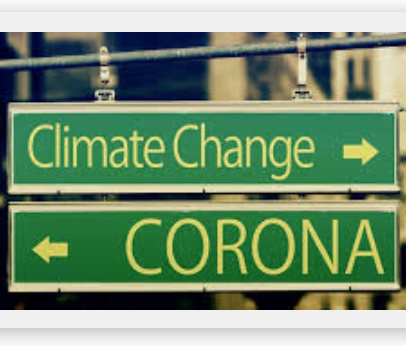By Ethan Quilty, student in Computer Science and Marine Biology at the University of Victoria
THE IMPACT OF COVID-19
The onset of the COVID19 pandemic has been swift. In just a few months, the world is a completely different place than the one we knew in 2019. We now face a long period of uncertainty. When will we travel again? When can we go to school again? But, most importantly, when will we stop this virus? Amidst all the uncertainty and ambiguity of this period, it is important to use the old cliché and look at the positives. As a self-proclaimed optimist, I believe there are many.
Being confined to your home is not an ideal situation; Furthermore, being unable to meet friends and family in person is equally upsetting. The loss of physical contact and activity is extremely difficult, and many see the confinement as an empty time to be filled with media consumption and make-work projects. I argue that it is an opportunity to learn from the mistakes that led to this situation and prevent such a tragedy from reoccurring, or at the very least, to be prepared for the next one. In addition to instigating a catastrophic global tragedy, the pandemic has exposed some areas of particular political importance. Namely, the environmental crisis has seen some positive impacts from this virus. Reduced vehicular traffic, scarce air travel and fossil fuel operations have all contributed to vastly reduced emissions levels in some of the hardest-hit countries, namely China and Western Europe. Here in British Columbia, reduced marine traffic has seen Salish Orcas and some juvenile whales travelling further into the port of Vancouver than they have been seen in hundreds of years. These are only some of the many examples that can be found of positive environmental impacts that are the result of this pandemic.
HOW WE CAN IMPROVE
The implementation of policies reducing vehicle usage and fossil fuel consumption could help us get on track to improving the environment. These types of actions will require policies that take a new approach; putting the environment first. Should policies be implemented that do not favor large companies and infinite economic growth, we could see a rise in environmental stewardship and improvement work. Studies have shown that climate instability has caused a great increase in zoonotic diseases like SARS CoV2. This really is only the beginning. Perhaps one more great thing to come from this pandemic is how it has shown the ability of nations to work together and get things done. Opposing political parties are more unified in pushing forward aid programs and directives than ever before – so why couldn’t this be applied to the environmental crisis? If a unified and directed approach can be taken on this, many of the problems we face could be lessened or eliminated altogether. Though COVID19 can be labelled as a public health crisis, its roots are far deeper than that. It has shown that if we cannot improve our practices, such as seriously fighting climate change or limiting our insatiable economic consumption,then humanity will certainly encounter more pandemics.
Citations:
Zambrano-Monserrate, M. A., Ruano, M. A., & Sanchez-Alcalde, L. (2020, April 20). Indirect effects of COVID-19 on the environment. Retrieved from https://www.sciencedirect.com/science/article/pii/S0048969720323305


